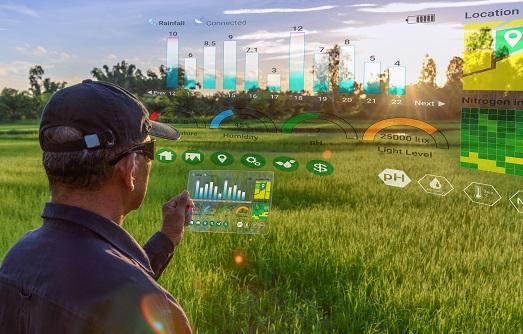
According to World Bank data, agriculture is one of the main economic sectors in the world, with an added value of more than three trillion dollars. But its importance goes much further. Sustainable agriculture, in addition to generating wealth, can help overcome many of the challenges that humanity faces, such as the fight against hunger, climate change or biodiversity conservation.
In this context, access to data related to agriculture and food is essential. Agricultural data facilitate informed decision making, and the development of policies that help overcome the challenges mentioned above. Therefore, many international organizations, such as GODAN, or private companies, such as Syngenta, are promoting this type of information sharing.
In our country, the main agency that is boosting the opening and dissemination of agricultural and environmental data at the state level is the Ministry of Agriculture, Fisheries and Food, known as MAPA (in its Spanish acronyms).
The MAPA provides updated information on agricultural, fisheries and livestock markets, forestry or rural development policies, the evolution of the agri-food industry, etc. In addition, it provides cartographies and geographic information of high utility, such as the Agricultural Plots Geographical Information System, which allows the identification of parcels declared by farmers and ranchers.
This Ministry also has a series of attached agencies that also generate and share their own data, focused on specific areas, such as the Food Chain Information and Control Agency (AICA), the National Agency for Agricultural Insurance (ENESA) and the Spanish Agricultural Guarantee Fund (FEGA). Many of the data sets that the MAPA and these agencies provide are federated with data.gob.es.
Among the many datasets we can find, the most visited by users are:

You can access these data sets through the following links:
- Census of operational fishing fleet
- Registration of animal feed establishments
- Consultation of products registered in the fertilizer products register
- General registry of organic farming operators
- Sigpac
These data sets, in addition to informing about the evolution of agricultural, livestock and fishery resources, facilitating transparency, can serve as a basis for creating products and services that add value to the economy and society. The Ministry of Agriculture, Fisheries and Food has contributed in this regard with the development of visualizations and applications that facilitate access to data for specific purposes. An example is SIAR, whose objective is to quickly and easily manage the irrigation program of a plot, with the consequent improvement in efficiency, sustainability and resource savings. The application uses data from the measuring stations of the Agroclimatic Information System for Irrigation, accessible through this portal. Another example is Natural Roads, which shows some of the routes included in the Natural Roads Network of Spain.
But not only the Ministry of Agriculture, Fisheries and Food has created applications based on its data. Thanks to the fact that the information is in open and accessible formats, companies and individuals have been able to create services such as CultivAPp, Fitosanitarios o Cropti, which help to manage farms in a more efficient and sustainable way.
Properly managing our resources is essential to guarantee the future of humanity. Therefore, more and more autonomous governments and private accelerators are committed to promoting innovation in the sector, an innovation that is closely linked to the use of new data-based technologies, such as Big data, IoT or Artificial Intelligence. The analysis of the information provided by the Ministry of Agriculture, Fisheries and Food allows enriching these technologies and improving production in a sustainable way, contributing to development.